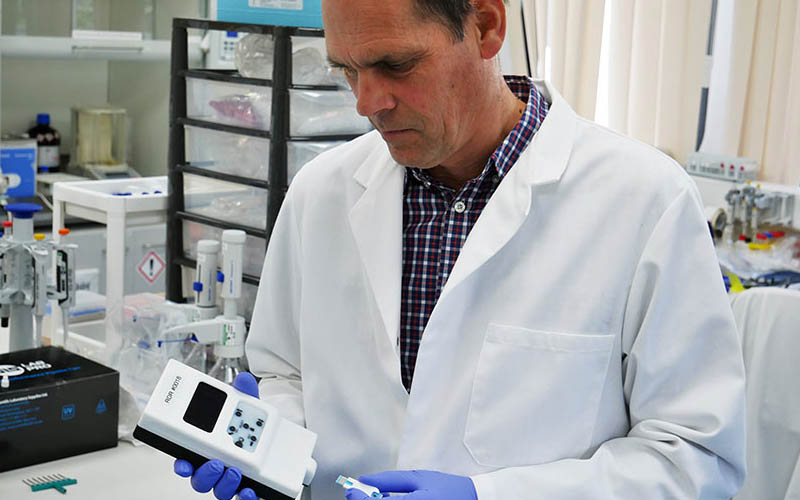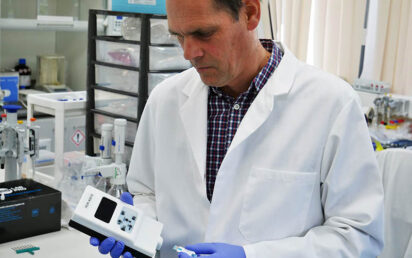Sarissa Biomedical, a Coventry-based BioTech firm, has secured £1.2m for a new hand-held device to diagnose strokes.
Established in 2002 as a spin-out from Warwick University, Sarissa produces biosensors for the medical and academic research market.
The new investment comes from a consortium of investors including the MEIF Proof of Concept & Early Stage Fund, which is managed by Mercia and part of the Midlands Engine Investment Fund, Mercia’s EIS funds, and private investors including Wren Capital and the Wood Family.
The new system will be the first of its kind, and is hoped to improve the prognosis for victims by allowing doctors to diagnose and treat them more quickly.
The device can be used on location or at the patient’s bedside and gives results in around five minutes.
It contains a disposable biosensor which analyses a fingerprick sample of blood and measures the level of purines, the chemicals released into the bloodstream within the first minutes of a stroke.
The funds will allow Sarissa to carry out a clinical study with the NHS and Newcastle University Stroke Research Group, and invest in product manufacture.
Dr John Clarkson, CEO of Sarissa, said: “We are pleased to say that, despite the current lockdown, we are able to press on with the clinical trials as planned with the aim of bringing this important new test to market as soon as possible.”
Dr Jo Slota-Newson of investor Mercia added: “This new tool from Sarissa represents a major step forward in reducing the huge toll of disability caused by stroke and relieving the burden on the NHS.
“Ultimately it could help millions more people by providing a fast and reliable way to diagnose other conditions such as heart attack, enabling patients to benefit from more prompt and effective treatment.”


